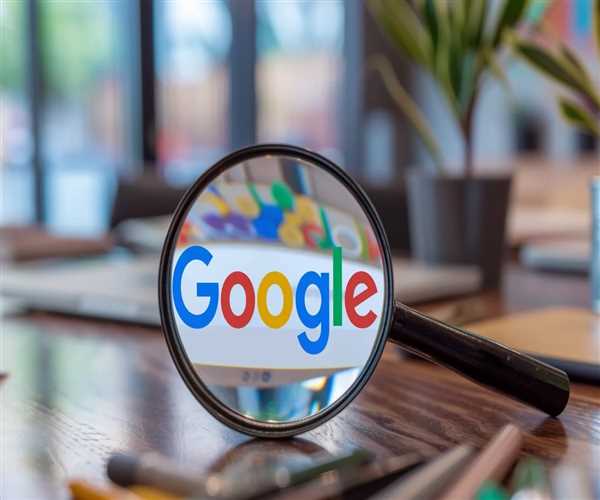
14-Nov-2024 , Updated on 7/28/2025 6:26:57 AM
How Google AIO Affect Your SEO?
For SEO, Google’s progress in AI makes that field even more fluid. All from RankBrain to the new generative AI, these disrupt innovations, reformulating the approach to content and keywords, as well as positioning strategy. Examine how recent innovative AI releases of Google, generative AI, and RankBrain reinvent the SEO techniques in presence, their effects on content, keywords, and competent ranking factors. In this post, you will discover effective strategies for utilizing AI tools for increased visibility and the changing search landscape.
1. About the Evolution of Google’s AI and SEO Matters
Some of Google’s AI developments, like BERT and RankBrain, have changed the face of SEO because they make it more important to understand the context of the search term. At present, Google optimizes content aside from keywords and studies the semantic relations and purposes of specific contents. Therefore, fundamental SEO strategies require restudy in order to conform to AI’s approach to language.
2. Content quality over keyword density
Unlike older algorithms where frequency of the word was valued, Google AI goes for quality and user-centered content. There is a need to carefully choose between using the keywords and populating the content with what users need. Having too many keywords in its content is meaningless, and they should avoid doing so, for they may lower its ranking.

3. Voice Search Optimization using Google AI
One of the functions that AI powers and transforms SEO methods is voice search. This is evident since search engine results that use natural language that people are likely to use in a conversation rank highly for voice searches. For instance, FAQs and conversational phrases help increase its chances of appearing on Google voice results—a trend prompted by AI’s focus on conversations.
4. Better Customer Experience or Customer Experience Optimization (CXO).
Google AI personalizes search engine results based on activity logs, geographical location, and preferences, among others. Due to the specifics of the search and users’ preferences, AI delivers more relevant material and alters SEO targeted at general keywords. Companies are allowed to offer customization so that the provided content is more relevant to the users.
5. Effects on Technical SEO and State of Website
Technical SEO is just as important in Google's AI-driven ecosystem. Google AI tends to notice well-structured, mobile-optimized sites with fast loading times. A responsive, fast, and user-friendly site is likely to rank better, hence the importance of mobile-first indexing strategies and technical audits.
6. Data-Driven Decisions with AI SEO Tools
Other SEO tools, for example, SEMrush and Moz, provide insights into user behavior, keyword trends, competitive analysis, and much more. These support informed SEO adjustments towards Google's AI-powered expectations, emphasizing how important data-driven strategies are. Take the case of mastering link building—things have acquired importance because Google, these days, values relevant back links in a contextual framework.
7. Trend Prediction with AI Analytics for SEO
AI-driven analytics help businesses remain proactive with SEO tactics through forecasted search trends. In fact, AI tools demonstrate pattern analysis, which indicates ideas for content and keywords that might hit a chord with future trends. Businesses can, therefore, use it for a forward-thinking SEO strategy by aligning their content with this predicted shift in audience interest.

8. The Role of Google's AI in E-A-T (Expertise, Authoritativeness, Trustworthiness)
Google AI now uses E-A-T when ranking website content. Content creators need to highlight expertise and credible sources, especially for health and finance content. Trustworthiness will determine ranking in such fields. Authoritative content will give better results for SEO since AI favors pages with strong E-A-T signals.
9. Refreshing Your Content and Consistency
AI algorithms prefer fresh content that is relevant to the search query. Refreshing and rechecking will ensure that the website is always up-to-date with current SEO compliance. AI prefers dynamic websites that keep refreshing multiple pieces of new content, suggesting to the search engine an active digital presence that could satisfy or fulfill the changing queries of users.
10. How to Future-Proof Your SEO Strategy for an AI-Powered World
That calls for a fluid approach to SEO. With developments from Google AI, companies need to play catch-up and be open to experimenting with the latest innovations that begin to include AI content generation and voice assistant optimization. Businesses that improve the user experience, remain technically excellent, and chase after trends can succeed in an AI-optimized environment.
Conclusion: Adaptation of SEO to AI-powered Google algorithms
SEO is creating artificial intelligence roles that change keyword-based strategies to user-centric strategies. It means Google AI innovations are shifting the focus to more meaningful, relevant, quality content, technical optimization, and flexibility in the face of algorithm changes. Thereby, given different SEO strategies for improvement, this will ensure your website stays competitive within an AI-driven search engine ecosystem.

Student
Being a professional college student, I am Shivani Singh, student of JUET to improve my competencies . A strong interest of me is content writing , for which I participate in classes as well as other activities outside the classroom. I have been able to engage in several tasks, essays, assignments and cases that have helped me in honing my analytical and reasoning skills. From clubs, organizations or teams, I have improved my ability to work in teams, exhibit leadership.
Comments
Join Our Newsletter
Subscribe to our newsletter to receive emails about new views posts, releases and updates.
Copyright 2010 - 2026 MindStick Software Pvt. Ltd. All Rights Reserved Privacy Policy | Terms & Conditions | Cookie Policy